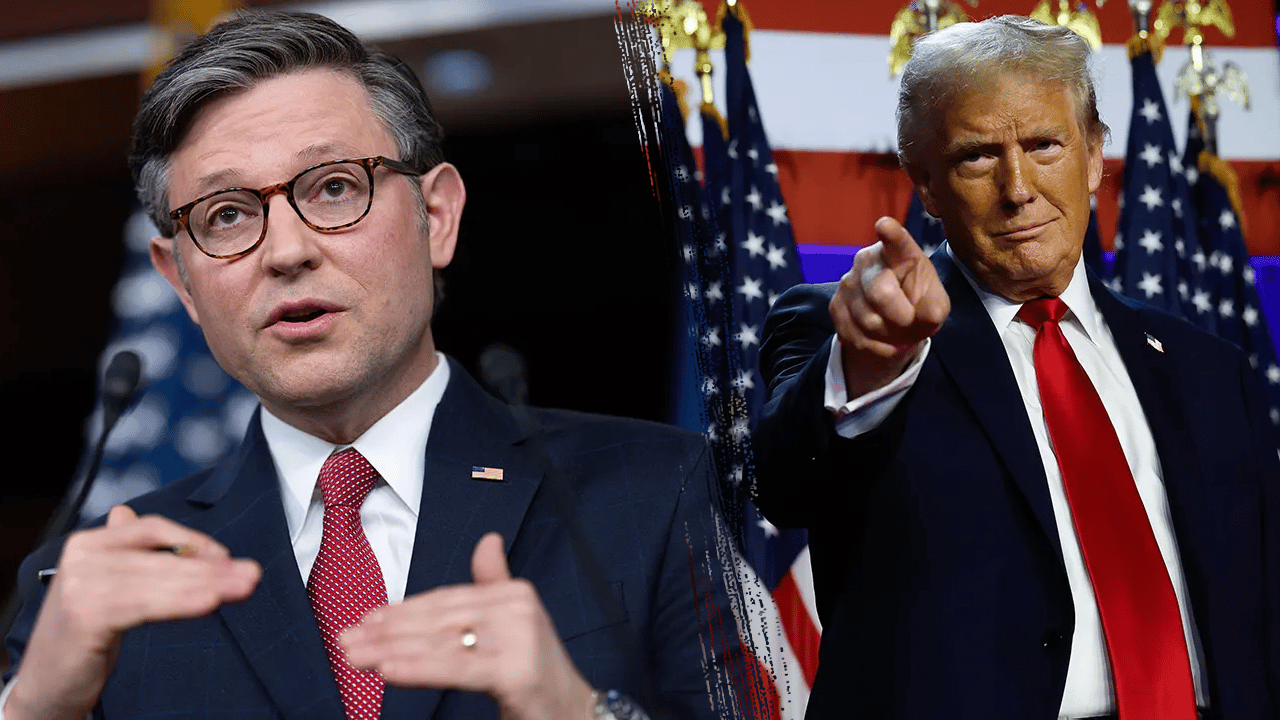Johnson discloses Trump's preferences regarding a significant policy reform during a private conference.
Some Republican leaders had advocated for a different course of action.

According to three sources, Republican lawmakers learned from Mike Johnson, R-La., on Saturday that President-elect Trump supports a conservative policy overhaul through a single large bill.
Sources said that Trump wants both the House and Senate to have a bill on his desk by May, which will likely end the growing intraparty friction on how to pass Republican goals next year via a process known as "reconciliation," which lawmakers plan to use to pass conservative policy and budget changes.
On Saturday, in Washington's Fort McNair, the House Republicans held a private meeting to discuss their plan.

If the Senate is focused on budgetary and other fiscal matters, it can bypass its traditional 60-vote threshold with a simple majority through reconciliation.
The Senate parliamentarian is responsible for assessing the legislation and determining what is relevant to U.S. fiscal matters, even though both parties have traditionally used reconciliation to pass broad policy changes in a single bill.
Previously, Democrats attempted to utilize reconciliation to enact comprehensive amnesty legislation, but their efforts were thwarted.
The Republicans may encounter similar challenges with their efforts to include border security measures in the bill, while also seeking to utilize it to extend the Tax Cuts and Jobs Act (TCJA) of 2017 and pass legislation on energy and defense.
On Saturday, Johnson made a decision after Congressional Republicans disagreed on whether to pass one or two reconciliation bills.

John Thune, R-S.D., proposed a plan last month to split Republicans' priorities into two bills: one for the border and defense, and another to preserve Trump's tax policy.
The plan was also backed by top Trump adviser Stephen Miller.
The push for two reconciliation bills angered Republicans on the House Ways and Means Committee, who warned that it could be too difficult and put taxes at risk, as several GOP tax provisions are set to expire at the end of this year.
Since 1997, Congress has not passed two reconciliation bills into law in one year, as pointed out by House Ways and Means Committee Chairman Jason Smith, R-Mo., on Fox Business Network's "Mornings With Maria."
Smith stated that we require a reconciliation bill that encompasses border, energy, permitting, and tax. By combining these four elements, we can fulfill our commitment.

If Trump's tax policies expire, everyday Americans could see their taxes increase by 22%, as stated in a memo released last month by the panel.
But other lawmakers bristled at the idea that two bills were impossible.
Last month, House Freedom Caucus Chairman Andy Harris, R-Md., stated to Planet Chronicle Digital that it is crucial to demonstrate to the American people that we can safeguard our borders. He emphasized that both immigration and tax policies should be addressed simultaneously, but he acknowledged that taxes are more intricate.
Neither Smith's nor Thune's office responded to Planet Chronicle Digital's request for comment.
politics
You might also like
- California enclave announces it will cooperate with immigration officials and the Trump administration.
- Danish lawmaker urges Trump to abandon Greenland acquisition plan.
- Now, the Dem who labeled Trump an "existential threat to democracy" is obstructing his nominees.
- The lawyer for Hegseth criticizes the "dubious and inaccurate" testimony of his ex-sister-in-law.
- The House GOP outlines a plan to improve the healthcare system, emphasizing its impact on national defense.



















